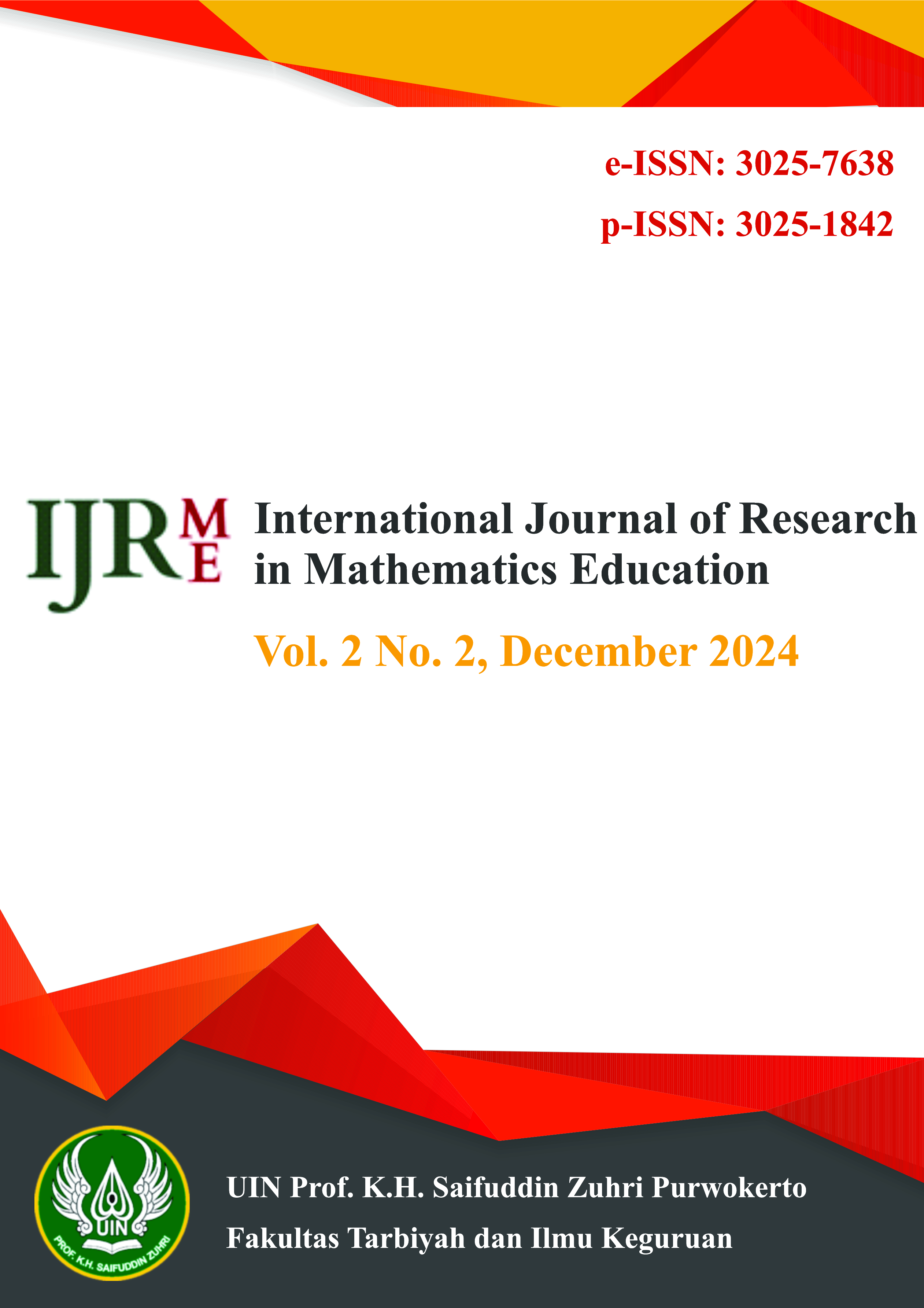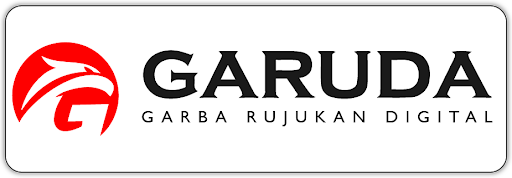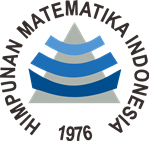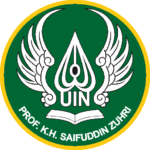Development of Android Learning Media to Improve Students' Mathematical Communication Skills on Social Arithmetic Material
DOI:
https://doi.org/10.24090/ijrme.v2i2.10361Keywords:
Android, Learning Media, Mathematical Communication SkillsAbstract
Mathematical communication skills are students’ ability to convey mathematical ideas or ideas which can be done orally or in writing as well as the ability to understand or accept other people's mathematical ideas. Learning at MTs Negeri 2 Purbalingga students still have a low level of mathematical communication skills, because learning still uses conventional learning media and does not involve students. The choice of learning media is an important thing to pay attention to and apply. The development of science and technology is increasingly advanced, so the learning media developed must also be more innovative, especially if it involves the role of technology in it. Therefore, the aim of this research is to develop valid and effective android based interactive learning media to improve students’ mathematical communication skills in class VII social arithmetic material at MTs Negeri 2 Purbalingga. The research method used in this research is Research and Development (R&D). The results of this study indicate that the android based learning media is declared valid and suitable for use with percentage results in the validation of material expert by 91.66%, media experts by 93.3%, teacher assessment by 92.5%, small group test assessment by 88.81%, and the field test assessment is 92,68%. Furthermore, the android based learning media developed is effective in improving students' mathematical communication skills with the t-test results getting a significance of 0.000 where the results are smaller than the significance limit of 0.05, so it can be concluded that H0 is rejected and H1 is accepted.References
Agustianti, R., Nussifera, L., Angelianawati, L., Meliana, I., Sidik, E. A., Nurlaila, Q., Simarmata, N., Himawan, I. S., Pawan, E., & Ikhram, F. (2022). Metode Penelitian Kuantitatif Dan Kualitatif. Tohar Media.
Assingkily, M. S. (2021). Metode Penelitian Pendidikan (Panduan Menulis Artikel Ilmiah dan Tugas Akhir). Penerbit K-Media.
Faizah, L. Nur. (2021). Pengembangan Media Pembelajaran Interaktif Berbasis Android untuk Mata Pelajaran Matematika Di Kelas X IPA MAN 1 Cilacap. Skripsi, 117.
Hamdan, B. H. (2020). Media Pembelajaran Efektif.
Hasan. (2021). Media Pembelajaran. In Tahta Media Group (Issue Mei).
Ismayanti, S., & Sofyan, D. (2021). Kemampuan Komunikasi Matematis Siswa SMP Kelas VIII di Kampung Cigulawing. Plusminus: Jurnal Pendidikan Matematika, 1(1), 183–196.
Kartini, Ketut Sedayana & Putra. (2020). Respon Siswa Terhadap Pengembangan Media Pembelajaran Interaktif Berbasis Android. Jurnal Pendidikan Kimia Indonesia, 4(1), 12.
Kustandi, Cecep, & Darmawan, D. (2020). Pengembangan Media Pembelajaran: Konsep & Aplikasi Pengembangan Media Pembelajaran bagi Pendidik di Sekolah dan Masyrakat. Prenada media.
La’ia, H. T., & Harefa, D. (2021). Hubungan Kemampuan Pemecahan Masalah Matematis dengan Kemampuan Komunikasi Matematik Siswa. Aksara: Jurnal Ilmu Pendidikan Nonformal, 7(2), 463.
Lovienta Arriza. (2020). Pengembangan Media Pembelajaran Matematika Berbasis Multimedia Interaktif Menggunakan Adobe Flash pada Materi Lingkaran untuk Kelas VIII SMP Swasta Islam An-Nur Prima. Skripsi, 201.
Mashuri, S. (2019). Media pembelajaran matematika. Deepublish.
Pradana, Unggul. (2022). Pengembangan Media Pembelajaran Game Edukasi dengan Pendekatan Kontekstual untuk Meningkatkan kemampuan Pemahaman Matematis Siswa Mater Statistika Kelas VIII. Skripsi.
Pratiwi, S. N., Cari, C., & Aminah, N. S. (2019). Pembelajaran IPA Abad 21 dengan Literasi Sains Siswa. Jurnal Materi Dan Pembelajaran Fisika, 9, 34–42.
Putri, H. E., Muqodas, I., Wahyudy, M. A., Abdulloh, A., Sasqia, A. S., & Afita, L. A. N. (2020). Kemampuan-kemampuan matematis dan pengembangan Instrumennya. UPI Sumedang Press.
Rahmawati, D. (2021). Pengembangan Media Pembelajaran Interaktif Berbasis Konteks Islami untuk Meningkatkan Kemampuan Komunikasi Matematis pada Materi SPLDV Kelas VIII.
Rayanto, Yudi Hari. (2020). Penelitian Pengembangan Model Addie Dan R2d2: Teori & Praktek. Lembaga Academic & Research Institute.
Rianti Rahmalia, Hajidin, H., & BI. Ansari. (2020). Peningkatan Kemampuan Komunikasi Matematis Dan Disposisi Matematis Siswa Smp Melalui Model Problem Based Learning. Numeracy, 7(1), 137–149.
Riyanti, R., & Mardiani, D. (2021). Kemampuan Komunikasi Matematis Siswa antara Model Pembelajaran Course Review Horay dan STAD. Plusminus: Jurnal Pendidikan Matematika, 1(1), 125–134.
Rohmah, S. N. (2021). Strategi Pembelajaran Matematika. UAD PRESS.
Rosmala, A. (2021). Model-model pembelajaran matematika. Bumi Aksara.
Setiadi, T., & Effendi, K. N. S. (2022). Analisis Kebutuhan Peserta Didik Terhadap Media Pembelajaran Berbasis Android pada Materi Aritmatika Sosial SMP. Jurnal Pembelajaran Matematika Inovatif, 5(1), 10.
Sumargo, B. (2020). Teknik sampling. Unj press.
Wahyuning, S. (2021). Dasar-Dasar Dasar Statistik.
Widana, W., & Muliani, P. L. (2020). Uji Persyaratan Analisis. In Analisis Standar Pelayanan Minimal Pada Instalasi Rawat Jalan di RSUD Kota Semarang.
Zaharah, N., Marzal, J., & Hsb, M. H. E. (2021). Pengembangan Multimedia Pembelajaran Matematika Berbasis Quantum Learning pada Materi Segiempat dan Segitiga untuk Meningkatkan Kemampuan Komunikasi Matematis. 05(03), 2768–2782.
Downloads
Published
How to Cite
Issue
Section
License
Copyright (c) 2024 Zahrotusy Sya'diyah, Arifin

This work is licensed under a Creative Commons Attribution-ShareAlike 4.0 International License.
Authors who publish with this journal agree to the following terms:
Authors retain copyright and grant the journal right of first publication with the work simultaneously licensed under a Creative CommonsAttribution-ShareAlike License that allows others to share the work with an acknowledgment of the work's authorship and initial publication in this journal.
Authors are able to enter into separate, additional contractual arrangements for the non-exclusive distribution of the journal's published version of the work (e.g., post it to an institutional repository or publish it in a book), with an acknowledgment of its initial publication in this journal.
Authors are permitted and encouraged to post their work online (e.g., in institutional repositories or on their website) prior to and during the submission process, as it can lead to productive exchanges, as well as earlier and greater citation of published work (See The Effect of Open Access).













